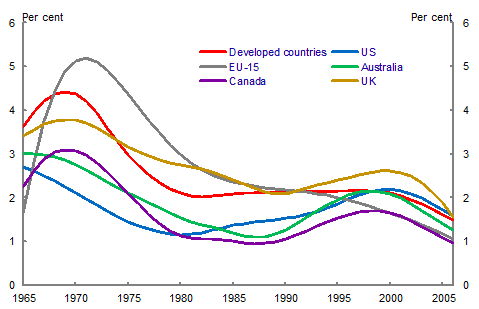Increasing productivity in the workplace is the principal driver to success in business. The irony is that with all of our technological advances and innovations that are supposed to increase efficiencies and productivity, we have become increasingly less productive. Many of the key world economies are in fact slowing. The largest European economies, along with those of Japan and the United States, saw productivity increase at five percent annually in the 1950s, 1960s and into the early 1970s; that rate slowed to three percent from 1973 until 1983; which decreased to two percent from 1983 until 1995; since then , productivity rates are at fewer than one percent.
The problem is that corporations and businesses both large and small have installed too many layers to measure productivity that consume valuable resources, including people, time and money, and prevent actual production from taking place. For instance, focusing on accountability, knowing who has to answer for when things go sideways, is one of the worst roadblocks to actually getting things done. “If you think about it, we pay more attention to knowing who to blame in case we fail than to creating the conditions to succeed,” says Yves Morieux from Boston Consulting Group in this TED Talk. “We are creating organizations able to fail, but in a compliant way, with somebody clearly accountable when we fail.” Performance deteriorates, which in turn triggers the reactionary creation of more structure and processes to understand why. That means more reports, meetings and investigation. “Teams in these organizations spend between 40 and 80 percent of their time wasting time.”
What is management to do? Increase cooperation which inherently can decrease the deleterious effects of accountability. According to Gentler’s 2013 U.S. Workplace Survey: “Collaboration remains key to the spread and development of ideas in pursuit of innovation.” Working together as a team, as opposed to individuals working in silos on the same project, will facilitate the breakdown of barriers. In fact, Prof. Dean Tjosvold from Simon Fraser University in Canada found that cooperation rather than competition creates a more satisfied employee, which leads to increased productivity nearly 30 years ago.
The issue with encouraging cooperation is that not everyone will buy into it and see how the group work can benefit him or her individually. “Is it really in their personal interest to cooperate . . . if when they cooperate, they are individually worse off? Why would they cooperate,” asks Morieux. The way around this is to create an individual goal that can only be achieved via group effort. Reported the Houston Chronicle: “To increase the productivity in your business, set goals that require cooperation and discourage competition. Tie everyone’s performance evaluations and bonuses to these cooperative goals.”
Furthermore, cooperation reduces redundancies within a business. That is because the communication required to be cooperative allows for fewer duplicated processes. The company saves time and money as a result of streamlining processes. Perhaps with a little more cooperation, economies can truly become more efficient and productive.

